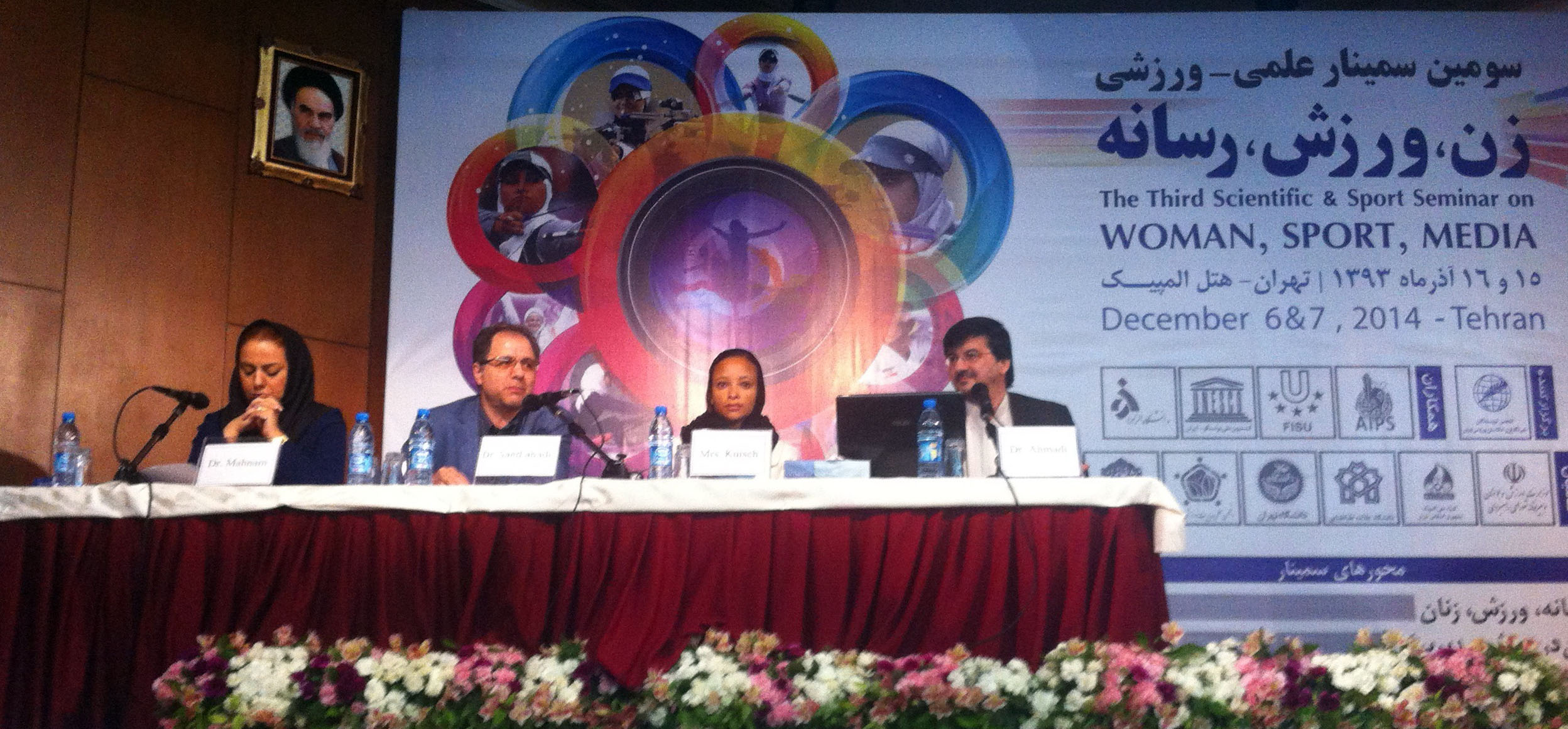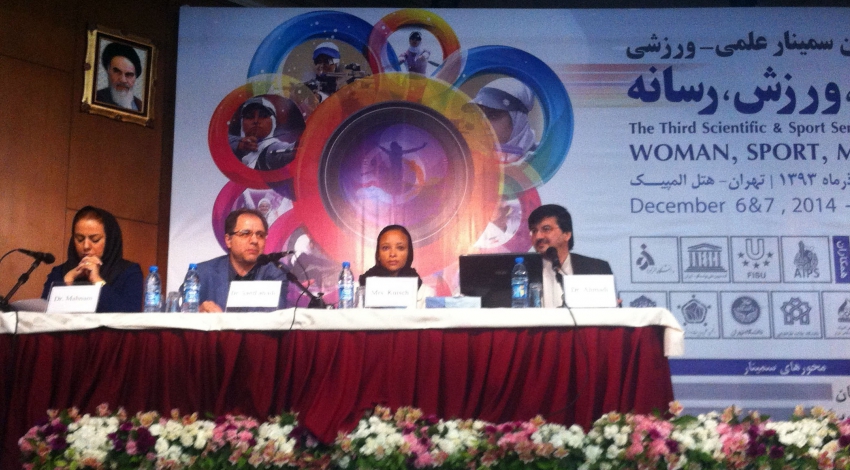
Panel discussion on UNESCO with (from left to right) Ms. Mahnam (Social and Human Sciences Dept, Iranian National Commission for UNESCO); Dr. Saeidabadi (Secretary General, Iranian National Commission for UNESCO); Ms. Esther Kuisch Laroche (Director and Representative, UNESCO Tehran Cluster Office) and Dr. Ahmadi (Vice Minister for Sports)[/caption]
On 6 and 7 December the Third International Scientific and Sport Seminar on Women, Sport and Media took place at the Olympic Hotel in Tehran. The event was organized jointly by the Iranian Sports Journalists Association, the Ministry of Sports and Youth, the Iranian National Commission for UNESCO and the Iranian National Committee for Olympics.
The seminar, which was attended by Dr. Ahmadai, Iranian Vice Minister for Sports, focused on the role of women in managing sports events; professional ethics and women�s rights in sports; media and women�s sports; and the place of women in international sport organisations.
During the seminar, the Director and Representative of UNESCO�s Cluster Office in Tehran, Ms. Esther Kuisch Laroche, talked about UNESCO�s important role as the United Nations� lead agency for Physical Education and Sport.
UNESCO provides assistance and guidance for governments, NGOs and experts to debate the evolving challenges of physical education and sport and to strengthen their training system in physical education. UNESCO is also actively involved in the anti-doping fight because of its desire to preserve fair and equitable sport and to protect young people involved in sport.
The Intergovernmental Committee for Physical Education and Sport (CIGEPS) was established in 1978 to promote the role and value of sport and its inclusion in public policy. Through this Committee, UNESCO has a unique ability to drive government action in the field of sport and physical education and to ensure the implementation of effective sport policies and programmes around the world.
�In UNESCO we use sport as a catalyst for peace and social development. Sport is a language that speaks to everyone and crosses all borders. It is a powerful tool to strengthen social ties and networks, and to promote ideals of peace, fraternity, solidarity, non-violence, tolerance and justice�, said Ms. Kuisch Laroche.
She mentioned that the issue of women and sports was of particular importance to UNESCO. In 2006, UNESCO�s Executive Board approved the establishment of a UNESCO Observatory on Women, Sport and Physical Education to gather, analyze, organize and disseminate information worldwide.
�Women around the world unfortunately still suffer frequent discrimination in their access to, and practice of, both amateur and professional sport. Moreover, women are significantly under-represented in management, coaching and officiating � particularly at the higher levels�, said Ms. Kuisch Laroche. �Sport gives women fabulous opportunities to engage in the public sphere, to assert themselves both in the field and in managerial positions, and to develop new skills. This is why UNESCO seeks to promote the integration of gender issues within the policies of sport, and raise awareness about the importance of guaranteeing a safe and healthy environment for women involved in sport.�
In June 2014, the 6th World Conference on Women and Sport was held under UNESCO�s patronage in Helsinki, Finland. The Conference brought together more than 800 participants from over 100 countries and called upon the international community to take immediate measures to bring positive changes in the areas of sport policy, leadership, coaching, participation and safety.
In this context, Ms. Kuisch Laroche welcomed the organization of this International Scientific Seminar on Women, Sport and Media in Tehran and said she hoped that it would enable to participants to continue promoting increased participation of Iranian women and girls in physical education and sports. She reiterated UNESCO�s full support to the efforts of the Islamic Republic of Iran in that regard.
By United Nations In Iran
The Iran Project is not responsible for the content of quoted articles.











